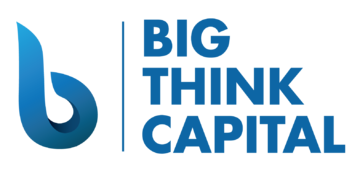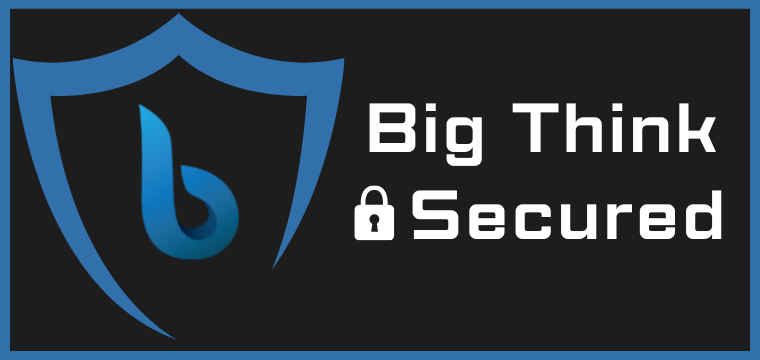
Through this guide, we will explore what business lines of credit are, the different types available, and their respective uses, benefits, and risks. Lastly, we will provide some pointers on how to choose the right credit line for your business.
What Are Business Lines of Credit?
A business line of credit is a flexible loan, akin to a credit card, that gives businesses access to a fixed amount of money which they can draw from whenever needed. Think of it like a pool of funds readily available, enabling a small business to handle any unexpected expenses, inventory purchases, or investment opportunities.
One crucial feature of a business line of credit is that a business only pays interest on the funds they have borrowed, not the entire credit line. For example, if you have a $100,000 business line, and only use $50,000, you only pay interest on the used $50,000. Businesses can repeatedly borrow on the business line as long as the balance remains under the credit limit.
Use and Benefits of Business Lines of Credit
A business line of credit is a versatile financing tool, offering necessary capital to cover various operational needs. It can offset the erratic nature of small business’ cash flow, assist in purchasing inventory, cover payroll during slow business seasons, or fund emergency repairs.
Moreover, the flexibility of the business line of credit is one of its key benefits. It offers the liberty to draw funds at your convenience, unlike a term loan, which provides a lump sum upfront. Also, the interest rates associated with a business line of credit are typically lower than credit cards.
Lastly, a business credit line can also strengthen your credit score. Regular, disciplined servicing of the credit can significantly improve your business credit score, giving your business more financial flexibility in the future.
Types of Business Lines of Credit: Secured and Unsecured
There are two primary types of business lines of credit: the secured line of credit and the unsecured line. The distinguishing factor between the two is the requirement of collateral.
An unsecured line of credit doesn’t require any collateral but often demands a high credit score and a solid business history. This is a riskier option for the lender, hence it often has higher interest rates.
On the other hand, a secured business line of credit necessitates a security deposit in the form of assets such as a property or business equipment. This arrangement typically offers lower interest rates as it provides a safety net for the lender.
Understanding Secured Business Lines of Credit
How Secured Lines of Credit Work
A secured line of credit demands collateral in the form of valuable business assets. This means that if your business is unable to repay the borrowed money, the lender can claim these assets. A secured business line of credit generally offers a more extensive credit limit compared to an unsecured option.
Some renowned choices for secured business lines of credit include the American Express Business Line and the Wells Fargo BusinessLine Line of credit. Both offer a range of perks, like a free rewards program and a flexible repayment term.
Benefits of Secured Business Lines of Credit
Secured lines come with several benefits. Firstly, they typically offer larger line amounts, thanks to the collateral providing a safety net to the lender. This can be beneficial, especially if a business needs a substantial influx of funds.
Additionally, secured lines of credit usually carry lower interest rates due to the lesser risk involved for lenders. This can help the borrower save a significant amount on the repayment amount.
Secured lines are also considered more accessible. Businesses with a lower credit score or less established trading history can obtain a secured line of credit easier than an unsecured one. This improves access to capital, aiding in the growth and expansion of the business.
Risks or Downsides Involved in a Secured Line of Credit
While a secured line of credit offers several advantages, it isn’t devoid of risks. The most prominent risk being the potential for the loss of assets. If a business defaults on the payment, the lender can seize the collateral.
Additionally, the process of obtaining a secured business line could be longer due to the complexity involved in evaluating and processing the collateral.
Finally, compared to unsecured lines of credit, secured lines often require a personal guarantee from the business owner, further tying personal finances to the business credit.
Unlock Your Business Potential Now!
Are you ready to take your business to new heights? Whether you’re considering a secured line for substantial funds or an unsecured line for flexibility, Big Think Capital is here to guide you. Connect with us now to explore the best business line of credit tailored to your needs.
Unveiling Unsecured Business Lines of Credit—Discovering the Pros, Cons, and Factors to Consider
Undeniably, access to capital is essential for small business growth. One popular financing option is an unsecured line of business credit. Unlike a secured business line of credit which requires collateral, an unsecured business line involves no such security deposit. However, like every financial tool, it has its pros and cons. This blog aims to shed light on these aspects.
How Unsecured Lines of Credit Work
A business credit card or an unsecured business line of credit gives you the flexibility to access funds as and when you need them. This flexibility makes it an ideal choice for managing the cash flow of a small business. While a credit card sets a credit limit, an unsecured line of credit functions similarly but offers higher limits subject to your business’s annual revenue. creditworthiness, monthly revenue, and draw fees may affect the line amount but you are generally only charged interest on the amount you withdraw.
Benefits of Unsecured Business Lines of Credit
Clearly, the most significant advantage of an unsecured line is the absence of a security deposit. Also, with flexible repayment terms, businesses can manage their operations more efficiently without worrying about large lump-sum repayments. Often, online lenders like Wells Fargo offer a business elite signature card or business credit card, such as the Wells Fargo business credit card, as part of their free rewards program. Such cards have no monthly maintenance fee and offer personalized loan offers depending on the cardholder’s credit score.
Risks or Downsides Involved in an Unsecured Line of Credit
While an unsecured line of credit seems attractive, it’s not without its drawbacks. Typically, lenders compensate for the risks associated with unsecured lines by charging higher interest rates than traditional bank loans. A business with a bad credit score may also find frustrating hurdles securing this credit line. In some cases, a personal guarantee might be needed if a minimum credit score threshold isn’t met, adding another layer of risk for business owners.
Choosing the Right Business Line of Credit: Factors to Consider
Assessing Your Business’s Needs and Financial Situation
Before securing any loan option, an accurate assessment of your business’s needs and financial status is critical. This involves reviewing your annual revenue, monthly revenue, and cash flow situation. You must also examine your credit score, as it can significantly impact your access to funding sources like a secured or unsecured business line. Traditional banks and online lenders offer various credit line amounts, so consider the specific needs of your business, such as funding for growth or smoothing out cyclical cash flows.
Looking at Your Risk Tolerance
Your risk tolerance is crucial in securing a business line of credit. If you can’t endure an increased interest rate, bad credit terms, or providing a personal guarantee, a secured business line of credit where assets secure the line, or a term loan might be a better option. Be sure to consider repayment term options and understand the terms of the line of credit, such as annual fee, maintenance fee, and whether the card offers rewards. These factors will help you choose the best loan options for your business’s financial health.
Work With Big Think Capital Today to Secure Your Next Credit Line
A business line of credit can either be secured or unsecured. A secured business line of credit requires collateral such as a security deposit, while an unsecured option does not. The amount you can borrow, interest rates, and qualifications are typically different for each type.








